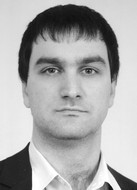Fitness industry clientele's needs and motivations in economic recession period
Фотографии:
ˑ:
Teoriya i praktika fizicheskoy kultury №12 2017, pp.12-14
PhD, Associate Professor V.V. Nasonov1
PhD, Professor P.G. Smirnov2
1Tyumen State University, Tyumen
2Tyumen Industrial University, Tyumen
Objective of the study was to analyse needs and motivations of the potential client groups/ segments on the market of physical training and sports services provided by fitness clubs to customise the services to the actual identified and classified needs and agendas. The study team analysed the available literature on the subject to classify motivations for physical practices and found that a prudent marketing strategy is needed to design the physical training and health services with a top priority to the potential clients’ interests, needs and motivations. The potential clientele to the physical training and health services classified into age and gender groups was surveyed to find and analyse the age- and gender-specific group motivations, factors of influence on them and the relevant key values. We believe that the study data and findings may be helpful in the efforts to promote physical culture and health services in different consumer groups and are beneficial for the relevant commercial physical training and health entities. The study data made it possible to design and offer a set of management and marketing policy options for fitness clubs to (a) lure the potential clients; and (b) prevent outflow of the clientele.
Keywords: motivations for physical training, diversification, economy, sports, needs, interests, marketing, fitness industry.
References
- Artemyev A.A., Morozova A.E. Platnye uslugi kak sposob uluchsheniya finansovogo sostoyaniya uchrezhdeniy fizkulturno-sportivnoy napravlennosti v usloviyakh krizisa [Paid services as a way to improve financial status of physical culture and sports institutions in crisis]. Mater. Vseros. nauch.-prakt. konf. molodykh uchenykh, aspirantov, magistrantov, soiskateley i studentov “Problemy sovershenstvovaniya fizicheskoy kultury, sporta i olimpizma” [Proc. Rus. res.-pract. conf. young scientists, postgraduates, undergraduates, applicants and students "Problems of improvement of physical culture, sports and Olympism"]. Omsk: SSUPC publ., 2016, no. 1, pp. 248-255.
- Ivanova S.V., Manzheley I.V. Organizatsiya fizkulturno-sportivnoy raboty po mestu zhitelstva na munitsipalnom urovne [Organization of municipal domiciliary sports activity]. Teoriya i praktika fiz. kultury, 2013, no. 2, pp. 42-47.
- Ivanova S.V., Manzheley I.V. Fizkulturno-sportivnaya rabota s naseleniem: sredovy podhod [Physical culture and sports activities with population: environmental approach]. Tyumen, 2015, 244 p.
- Kosogortsev V.I. Podkhody k klassifikatsii uslug fizkulturno-sportivnykh organizatsiy [Services provided by physical culture and sports organizations: classification approaches]. Rossiyskoe predprinimatelstvo, 2016, no. 4, pp. 573-584.
- Smirnov P.G., Smirnov P.P. Marketingovaya politika fizkulturno-sportivnykh organizatsiy v usloviyakh finansovo-ekonomicheskogo krizisa [Marketing policy of physical culture and sports organizations under financial and economic crisis]. Mater. Mezhdunar. nauch.-prakt. konf. “Vospitatelno-patrioticheskaya i fizkulturno-sportivnaya deyatelnost v vuzakh: innovatsii v reshenii aktualnykh problem” [Proc. Intern. res.-pract. conf. "Educational and patriotic and physical education and sports activities in universities: innovation in solving pressing problems"], Tyumen: TIU publ., 2017, pp. 267-271.
- Khametova N.G., Kurmaleeva R.R. Rol marketinga v privlechenii klientov v fitnes klub [Role of marketing in attracting clients to fitness club]. Sb. st. Mezhdunar. nauch.-prakt. konf. “Fundamentalnye problemy nauki” [Proc. Intern. res.-pract. conf. "Fundamental problems of science",]. Ufa: Aeterna publ., 2016, pp. 295-298.




 Журнал "THEORY AND PRACTICE
Журнал "THEORY AND PRACTICE